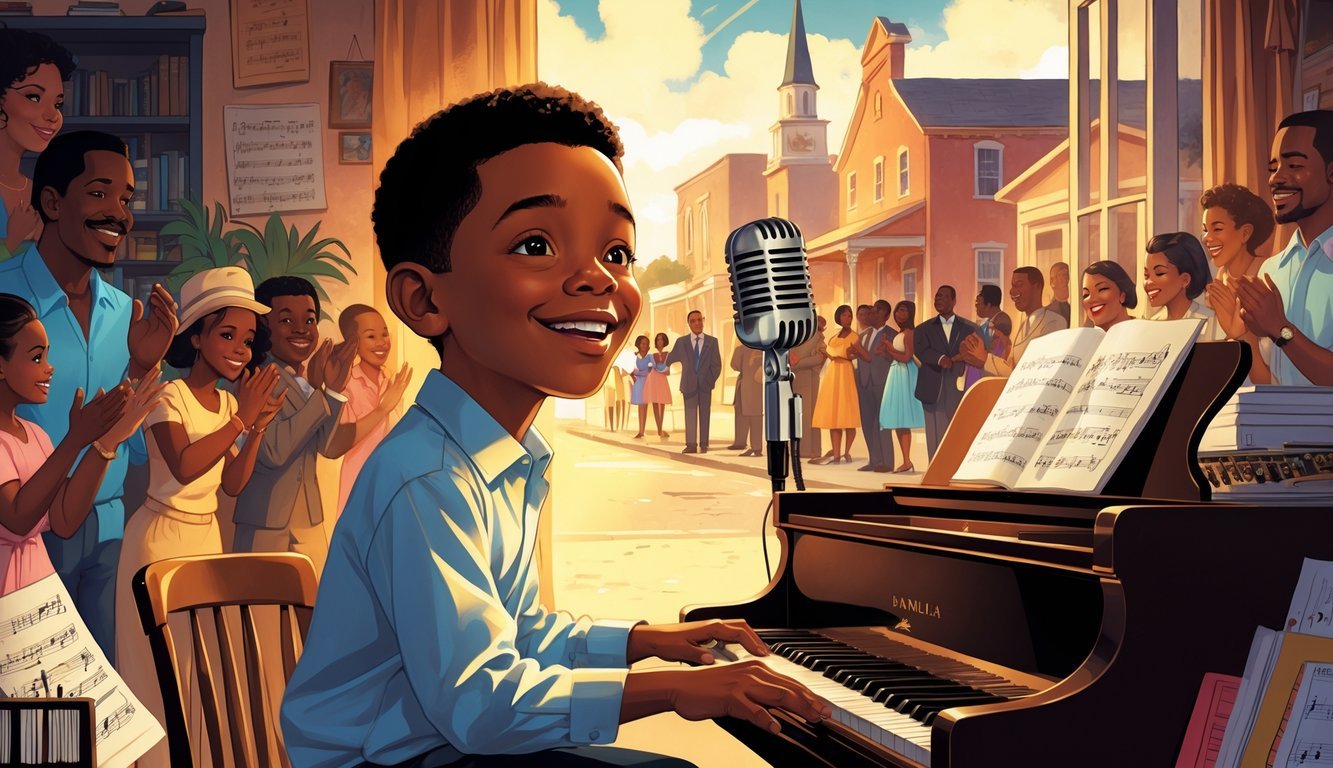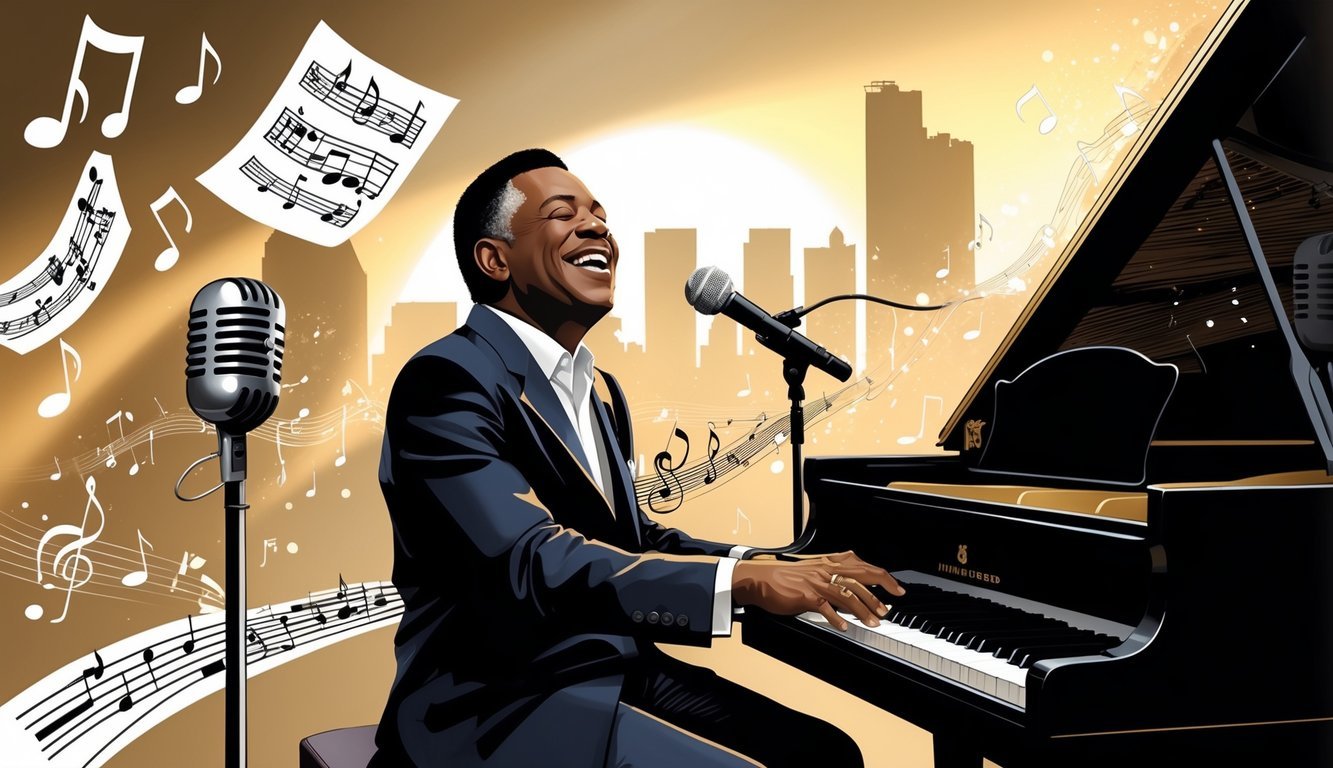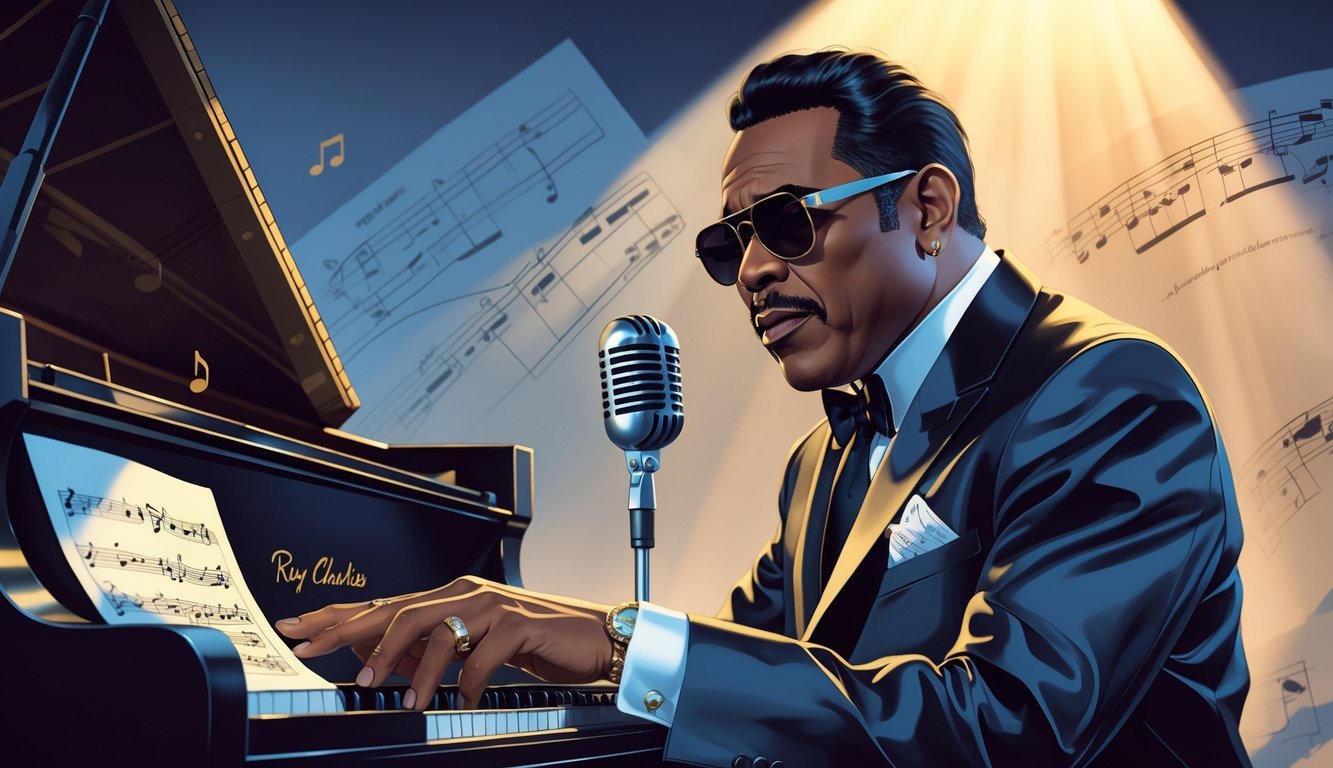PsychNewsDaily Publishers
100 Summit Drive
Burlington, MA, 01803
Telephone: (320) 349-2484
PsychNewsDaily Publishers
100 Summit Drive
Burlington, MA, 01803
Telephone: (320) 349-2484
Ray Charles, the Father of Soul, revolutionized music by blending gospel, rhythm and blues, and jazz, overcoming blindness and poverty to inspire generations with his timeless hits.

Ray Charles changed music forever as an American singer and pianist. People call him the “Father of Soul” because he mixed rhythm and blues with gospel, creating a new sound. He was born in Georgia in 1930, and by age 7, he lost his sight. But honestly, he never let that stop him from chasing his dreams.
You’ll see how Charles pushed through poverty and blindness on his way to becoming a music legend. Songs like “Hit the Road Jack” still get played everywhere. His story proves that talent and grit can break through nearly any barrier.

Ray Charles’s early years really shaped him. He faced blindness, found music, and used those experiences to build his career.
Ray Charles was born in Albany, Georgia, in 1930. His family moved to Greenville, Florida when he was still a child.
By age seven, glaucoma took his sight. His mother worked as a sharecropper, and his father worked as a mechanic or maybe on the railroad.
Ray faced tough times, including losing his younger brother. Those hardships built his strong spirit and his deep love for music.
Ray’s education at the Florida School for the Deaf and the Blind changed his life. He started there after going blind.
At school, Ray learned more than just music. He picked up braille and honed his hearing, developing perfect pitch.
This let him recognize notes instantly and sharpen his natural talent. The school gave him the tools to grow as a pianist and performer.
Ray found his musical roots in church gospel. The storytelling and call-and-response shaped how he sang and played.
He soon moved into rhythm and blues, mixing it with soul, jazz, country, and pop. That blend made his music unique.
His style brought deep emotion and strong rhythms that made you want to move. Ray Charles, as a pianist and singer, really changed American music.

Ray Charles shook up the music world by mixing soul, blues, jazz, country, and pop. His hit songs broke barriers, and he racked up major awards.
He influenced artists, changed culture, and pushed through personal struggles that shaped his legacy.
Ray Charles made his first splash with “Confession Blues”. But “I Got a Woman” really put him on the map, blending gospel and rhythm and blues to help launch soul music.
Hits like “Hit the Road Jack”, “Unchain My Heart”, and “Georgia on My Mind” turned into classics.
His album Modern Sounds in Country and Western Music took things further. He showed people you could mix country with pop and soul and still have massive success.
Songs like “Busted” and “Crying Time” crossed both racial and genre boundaries. He climbed the Billboard Hot 100 with these tracks.
Ray also recorded “I Can’t Stop Loving You” and “In My Own Tears”. He blended emotion and style in a way few others could.
His group, the Raelettes, added a rich layer to his sound and made his stage shows unforgettable.
Ray Charles’s awards tell you just how much he changed music. He won 12 Grammy Awards and received a Grammy Lifetime Achievement Award.
His album Genius Loves Company picked up several Grammys late in his career. Ray landed in the Rock and Roll Hall of Fame, a nod to his impact on rock and roll.
He earned the National Medal of Arts, the Kennedy Center Honors, and the President’s Merit Award. Those honors recognized his artistry and his cultural influence.
His song “Georgia on My Mind” became an official state symbol. He often appears in lists of the 100 Greatest Artists of All Time.
These awards show his influence across jazz, blues, country, and pop.
People often call Ray Charles the Father of Soul. He created a sound that totally changed popular music.
His style blended gospel with secular songs, inspiring artists like Stevie Wonder, Aretha Franklin, and Billy Joel.
You can hear his influence in rock, pop, hip-hop, and even disco. Musicians still cover his songs and sample his sound.
He broke down racial barriers in music during the civil rights era. Ray proved you could be an African American star with crossover success.
He worked with big names like Quincy Jones and joined projects like We Are the World. Tribute artists like Jamie Foxx and bands like The Blues Brothers keep his spirit alive.
Ray Charles’s life was never easy. He lost his sight at age seven and struggled with heroin addiction as a young man.
Even so, he kept making music and started charities like the Ray Charles Foundation and the Robinson Foundation for Hearing Disorders.
His autobiography opens up about his battles with drugs and liver failure. You get a look at the real man behind the music.
Ray’s honesty about addiction helped others understand recovery. His legacy lives on—through his music, his awards, and his support for civil rights.
He opened doors for future artists by blending styles and breaking boundaries. Listen to his hits or read about his life, and you can feel his influence.

Here are some quick answers about Ray Charles—his music, his early life, and the impact he left behind. You’ll learn about his family, how he lost his sight, and his influence on soul music.
Ray Charles was a famous American singer, pianist, and songwriter. He helped create soul music by mixing gospel, jazz, and blues.
His work shaped the sound of modern music.
You’ll probably recognize “Hit the Road Jack,” “Georgia on My Mind,” and “What’d I Say.” These songs still get played today and helped define soul music.
Ray Charles was born in Albany, Georgia, in 1930. He went blind by age 7 but learned piano and music at a school for blind children.
Music became his way to express himself and find his path.
Ray Charles had 12 children. Some of them followed in his footsteps and work in music, keeping his legacy going.
Ray Charles lost his sight at age 7 because of glaucoma. This condition made him blind, but it didn’t stop him from chasing his passion for music.
Ray Charles blended gospel with rhythm and blues, and that’s really how soul music took off. He brought something raw and honest that people hadn’t quite heard before.
His style inspired countless artists. Honestly, he changed the way people listen to and feel music.